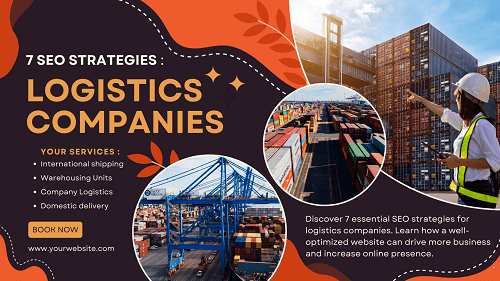In today’s digital world, a strong online presence is essential for logistics companies looking to stay competitive and attract new clients. While logistics services typically involve complex operations, having a professional website with reliable SEO strategies can simplify how clients find and connect with your business online.
As the logistics industry becomes increasingly competitive, having a well-optimized website can be the key to reaching new customers and growing your business. Search Engine Optimization (SEO) is an essential tool that allows logistics companies to rank higher in search engines, drawing in potential clients looking for logistics services. This article covers seven essential SEO strategies specifically customized to help logistics companies increase visibility, drive more business inquiries through a website. Including tips for local SEO, content marketing, mobile optimization and stand out in the marketplace.
Table of Contents
SEO’s Role in Logistics
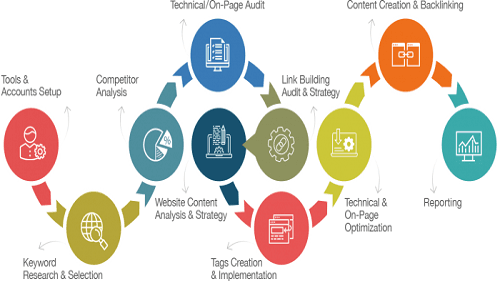
The goal of SEO for logistics companies is to bring relevant visitors who are actively searching for logistics solutions, not just increase traffic. High search engine rankings can mean the difference between a visitor who simply browses and one who converts into a long-term client.
Understanding SEO’s role is essential to thrive in a competitive market. SEO helps these businesses increased visibility online, making it easier for potential clients to discover their services. By targeting relevant keywords like “freight forwarding” or “supply chain solutions,” logistics companies can attract targeted traffic and generate leads. Effective SEO also improves credibility by placing the company higher in search results, building trust among users. Additionally, local SEO can drive more business from specific regions, while SEO-optimized content can develop the company as an authority in logistics, helping to capture both local and global clients.
Why Logistics Companies Need SEO
Having a website is only the beginning. SEO improves your online visibility, making it easier for potential clients to discover your services through search engines like Google. When executed well, SEO can help logistics companies rank higher in search results, attract more organic traffic, and ultimately increase bookings or inquiries. Unlike paid advertising, SEO is a long-term strategy that builds your online presence organically, developing credibility and helping logistics companies compete with larger players. Additionally, SEO can provide substantial returns over time without the constant investment required by pay-per-click ads. Allowing logistics companies to focus on growth rather than constantly investing in paid ads.
Strategy 1: Optimize Your Website for Targeted Keywords
Keyword optimization is the foundation of SEO strategy. Using targeted keywords ensures that your website appears in relevant search results, helping you reach clients actively searching for logistics solutions. Optimizing the website for targeted keywords is crucial to attracting relevant clients and increasing online visibility.
By strategically incorporating keywords like “freight services,” “logistics solutions,” and “supply chain management” across the website’s content, headers, Meta descriptions, and URLs, logistics companies can improve their search engine rankings. This targeted approach ensures the website appears when potential clients search for these specific services, driving high-quality, conversion-ready traffic. Regularly updating and analyzing keyword performance also helps in adjusting to market trends, keeping the company competitive in the logistics industry.
How to Choose the Right Keywords
- Identify Core Services: Start by defining the core services your company offers, such as freight forwarding, warehouse management, and third-party logistics.
- Long-Tail Keywords: Incorporate long-tail keywords like “logistics companies for small businesses” or “international freight forwarding services” to attract more specific searches.
- Location-Based Keywords: If you serve specific regions, include location keywords, such as “logistics companies in [city]” or “logistics services [city].”
Start by researching which keywords your target audience is using. Google Keyword Planner, SEMrush, or Ahrefs are excellent tools for keyword research. Keywords should reflect your services and locations, if applicable.
Where to Use Keywords
Keywords should be strategically placed in essential areas of website, including:
- Meta Titles and Descriptions: Create keyword-rich Meta titles and descriptions that briefly describe each page.
- Headings and Subheadings: Use headings with keywords to improve relevance and readability.
- Service Pages and Blog Content: Write service descriptions and blog posts that include targeted keywords naturally, helping search engines understand the scope of your offerings.
- Alt Text for Images: Always write alt text for images to improve SEO and accessibility. Improve user experience and boost your website’s search visibility.
This ensures that search engines understand your website’s focus and can match it with relevant search queries, attracting potential clients actively searching for logistics solutions. By optimizing your website with the right keywords, logistics companies can rank higher in search results, driving more qualified traffic to their websites.
Strategy 2: Using Local SEO to Reach Nearby Clients
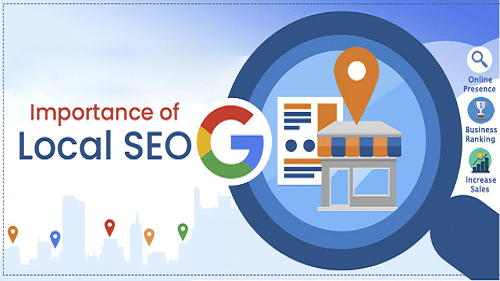
Local SEO focuses on optimizing your website for local searches, which is especially important for logistics companies with specific regional coverage. Using local SEO is a powerful strategy to connect with nearby clients looking logistics solutions. Many logistics businesses serve local or regional markets, by optimizing for location-specific keywords like “logistics companies near me” or “freight services in [city].”
Including accurate business information on Google My Business, logistics companies can improve their visibility in local search results. Local SEO tactics, such as gathering positive client reviews and listing the business on local directories, increase trust and appears to nearby clients. This approach not only helps build a strong local client base. But also drives more targeted, high-converting traffic to the company’s website.
How Local SEO Benefits Logistics Companies
- Captures Local Traffic: When clients search for logistics companies in their area, Google prioritizes businesses nearby. Appearing in these results can attract local clients who prefer working with a nearby service provider.
- Improves Trustworthiness: Local SEO listings on Google My Business and reviews from clients build trust, making potential clients more likely to reach out.
How to Use Local SEO
- Google My Business: Set up and optimize your Google My Business profile with accurate business details, including services, hours, and location. This profile can make your company more discoverable to local clients.
- Local Citations: Register your business in local and logistics-specific directories. Citations improve your credibility and improve your local search ranking.
- Customer Reviews: Encourage satisfied clients to leave reviews on Google and other review platforms. Positive feedbacks build trust and increase your prospect of showing up in local search results.
Local SEO strategies help logistics companies rank for relevant local searches, bringing in business inquiries from clients within your service region. By optimizing for local SEO, logistics companies can capture nearby clients who are more likely to convert into long-term customers.
Strategy 3: Mobile Optimization for Improved User Experience
As mobile usage continues to rise, it’s crucial that logistics companies optimize their websites for mobile devices. Mobile optimization is essential to provide an improved user experience for clients who search for services on smartphones and tablets. Mobile-friendly websites provide a better user experience and are prioritized by Google in search rankings, meaning a mobile-optimized website can improve both user satisfaction and search engine visibility.
A mobile-friendly website ensures that potential clients can quickly access information, request quotes, and navigate services on any device. With the growing trend of mobile usage, having a responsive design, fast load times, and easy-to-use mobile features can significantly improve engagement and reduce bounce rates. By prioritizing mobile optimization, logistics companies can capture and retain a broader audience, making it easier for clients to connect and do business on the go.
Benefits of Mobile Optimization
- Better User Experience: Mobile optimization ensures visitors can navigate your website easily, read information, and contact your company without frustrating barriers.
- Higher Rankings: Google considers mobile-friendliness as a ranking factor, meaning a mobile-optimized website is more likely to rank highly.
Key Factors of Mobile Optimization
- Responsive Design: A responsive website design automatically adjusts its layout based on the user’s device, whether it’s a smartphone, tablet, or desktop.
- Speed Optimization: Mobile users expect quick load times. Compress images, minify code, and use a reliable hosting service to improve load times.
- Clear and Accessible Navigation: Mobile screens are smaller, so ensure that menus, contact forms, and service pages are easy to access and navigate on mobile devices.
With mobile optimization, logistics companies can improve their search engine ranking and provide a seamless experience for clients on any device. By optimizing your website for mobile, you make it easier for potential clients to access information about your services anytime, anywhere, improving their prospect of engaging with your business.
Strategy 4: Content Creation to Develop Authority and Drive Traffic
Creating high-quality content can set logistics companies apart as industry experts and improve SEO rankings. Content marketing also provides an opportunity to address client questions, showcase expertise, and educate potential customers about logistics services.
Content creation plays a crucial role in building authority and driving engagement. By producing valuable and informative content such as blog posts, case studies, and industry insights, logistics companies can develop themselves as experts in their field. Content that addresses client problem areas, provides solutions, and shares market trends can improve credibility and attract potential customers. High-quality, relevant content also improves SEO, making it easier for prospective clients to find the company online. Overall, a strong content strategy can encourage trust, increase engagement, and support long-term client relationships.
Types of Content for Logistics Companies
- Blog Posts: Write about logistics topics relevant to your target audience, such as “Benefits of Third-Party Logistics” or “How to Choose a Freight Forwarder.”
- Case Studies and Success Stories: Show real-life examples of how your successful projects have helped your clients overcome logistics challenges and build trust.
- Guides and FAQs: Create guides about logistics topics, such as import/export regulations or warehouse management tips. Address common questions, like “What is Freight Forwarding?” or “How to Prepare Goods for Shipping.” Which can help potential clients make informed decisions.
High-quality content not only attracts more traffic but also engages visitors, increases time spent on your website, and encourages them to return. All of which positively impact SEO.
How Content Marketing Boosts SEO
Search engines prioritize websites that regularly publish valuable, original content. Content marketing is a powerful tool to boost SEO and drive organic traffic. By consistently creating relevant, informative, and keyword-optimized content, logistics businesses can improve their search engine rankings, making it easier for potential clients to discover them online. Content like blog posts, guides, and industry insights not only improves visibility. But also helps build authority in the market. This approach enables logistics companies to address client questions and concerns. Thereby improving user engagement, reducing bounce rates, and increasing the chances of converting visitors into leads.
Strategy 5: Building Quality Backlinks for Higher Authority
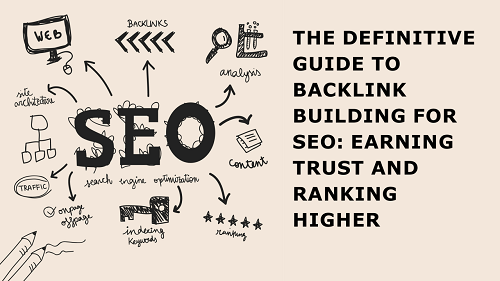
Backlinks—links from other websites to your own website, are a powerful SEO tool. They act as “votes of confidence,” signaling to search engines that your website is credible and authoritative. Building quality backlinks is crucial for logistics companies aiming to increase their online authority and improve search engine rankings.
High-quality backlinks from reputable websites signal to search engines that a logistics company’s website is credible and valuable, which can boost its visibility in search results. Logistics companies can earn backlinks by collaborating with industry-related websites, contributing guest posts, or sharing insightful content that others want to reference. A strong backlink profile not only drives organic traffic. But also develops the company as a trusted leader in the logistics industry, helping to attract more clients and grow the business.
Strategies for Building Backlinks
- Industry Partnerships: Partner with other businesses in the logistics or transportation industries to create mutually beneficial backlinks.
- Guest Blogging: Write articles for industry blogs and include a link back to your website. This approach not only builds backlinks but also positions you as an industry expert.
- Local Business Links: Many local business directories offer backlink opportunities. Be sure submit your website to credible local and logistics-specific directories to gain high-quality backlinks.
By building a reliable network of backlinks, logistics companies can improve their domain authority and increase their chances of ranking higher in search results.
Benefits of Backlinks for Logistics Companies
Quality backlinks increase domain authority, helping logistics companies rank higher in search results. Moreover, backlinks from industry-relevant websites direct targeted traffic to your website, driving potential business inquiries.
Backlinks offer significant benefits for logistics companies by improving their online presence and authority. Quality backlinks from credible sources increase the trustworthiness of a logistics company’s website in the eyes of search engines, which can lead to higher rankings and greater visibility. This increased exposure helps attract more organic traffic, making it easier for potential clients to discover the company’s services. Additionally, backlinks from reputable industry websites develop the company as a thought leader, improving its reputation and credibility within the logistics sector. Overall, effective backlink building can support growth and competitiveness in a crowded market.
Strategy 6: On-Page Optimization for Higher Rankings
On-page optimization is essential for logistics companies aiming for higher search engine rankings. By optimizing elements like meta titles, descriptions, headings, and image alt text with targeted keywords, logistics companies can make their website more relevant to search engines and easier for users to navigate. Additionally, improving page speed, mobile-friendliness, and content quality ensures a better user experience, which is highly valued by search algorithms. Effective on-page optimization not only enhances visibility in search results. But also helps convert more website visitors into clients by delivering relevant and accessible information about logistics services.
Key On-Page SEO Elements
- Meta Titles and Descriptions: Write brief, keyword-rich titles and descriptions for each page. These are the brief descriptions that appear in search engine results. Include targeted keywords to improve relevance and attract clicks.
- Headings and Subheadings: Use keyword-rich headings (H1, H2, and H3) to organize content logically, make it easy for helping search engines understand the structure and purpose of each page.
- Image Optimization: Use descriptive alt text for images, which helps search engines understand image content and improves accessibility.
These small adjustments help search engines understand the content and purpose of your pages, improving your ranking and making it easier for potential clients to find your services.
How On-Page Optimization Impacts Rankings
By optimizing these elements, logistics companies can improve user experience and make it easier for search engines to index and rank their content, leading to higher visibility and more business inquiries. On-page optimization plays a pivotal role in determining how logistics companies rank in search engine results.
By focusing on critical elements such as keyword placement, page load speed, Meta tags, headings, and content relevance, logistics companies can signal to search engines that their website is authoritative and relevant to users’ queries. Well-optimized on-page factors improve user experience, reduce bounce rates, and increase time spent on the website, all of which contribute to better rankings. In a competitive industry like logistics, effective on-page optimization ensures that companies appear higher in search results, attracting more traffic and potential clients.
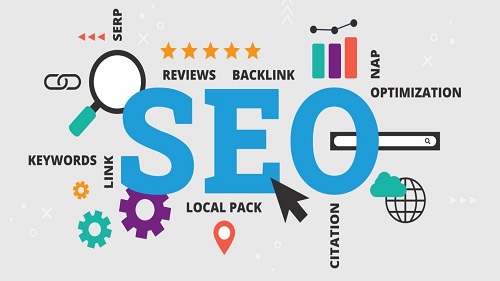
Strategy 7: Tracking and Measuring SEO Performance
To ensure your SEO efforts are working, tracking and measuring performance is essential. Analytics provide insights into what’s driving traffic, which pages perform best, and where improvements can be made. Tracking and measuring SEO performance is essential for logistics companies to understand the effectiveness of their digital marketing strategies.
By using tools like Google Analytics, Google Search Console, and specialized SEO software, logistics companies can monitor key performance indicators (KPIs) such as organic traffic, keyword rankings, bounce rates, and conversion rates. This data helps companies identify areas of improvement, optimize content, and refine strategies to boost online visibility. Regular performance tracking ensures that SEO efforts remain matched with business goals, leading to continuous growth and a competitive edge in the logistics industry.
Key SEO Metrics for Logistics Companies
- Organic Traffic: Track the number of visitors finding your website through search engines. An increase in organic traffic indicates that your SEO efforts are working.
- Keyword Rankings: Monitor your rankings for targeted keywords. Higher rankings mean greater visibility.
- Conversion Rates: Track the percentage of visitors who contact you or inquire about services, as this is the ultimate goal of SEO.
Using Analytics Tools
- Google Analytics: Offers insights into visitor behavior, demographics, and traffic sources. Pay attention to metrics like bounce rate, session duration, and conversion rate.
- Google Search Console: Use this tool to monitor your website’s search performance, including search queries, clicks, and impressions. This shows data on keyword rankings, search impressions, and technical SEO issues.
- SEO KPIs: Focus on metrics like organic traffic, keyword rankings, and backlink count to measure SEO success.
By regularly monitoring these metrics, logistics companies can identify areas for improvement, track the effectiveness of their SEO strategies, and adjust to changing market conditions. This can improving their chances of achieving long-term growth.
FAQs
1- Why is SEO important for logistics companies?
SEO helps logistics companies increase their online visibility, making it easier for potential clients to find and contact them through search engines.
2- How can local SEO benefit a logistics company?
Local SEO allows logistics companies to target clients in specific regions, making it easier to attract local businesses in need of logistics services.
3- What types of content should logistics companies create for SEO?
Blog posts, case studies, and industry guides are ideal content types for logistics companies, as they develop expertise and attract potential clients.
4- How can logistics companies obtain quality backlinks?
Partnering with industry businesses, guest blogging, and listing in local directories are effective ways to build high-quality backlinks.
5- How often should logistics companies update their SEO strategy?
Regularly monitoring SEO performance is essential, so it’s recommended to review and adjust strategies every quarter based on analytics insights.
Conclusion-
Implementing SEO strategies specifically designed for logistics companies can significantly boost visibility and drive more business inquiries. From optimizing for targeted keywords and local searches to building quality backlinks, SEO offers a sustainable and cost-effective way for logistics companies to reach new clients and compete in a growing industry. By making SEO a priority, logistics companies can ensure their services are easily found online, drawing in clients and growing their business. By using these seven SEO strategies, logistics companies can strengthen their online presence and drive more business through a well-optimized website.
If you enjoyed this article about the logistics companies, share your thoughts in the comments below! Please visit www.uniqueincs.com for more valuable content and claim your free e-book. Plus, explore discounted Digital Marketing Products to boost your business!
Improve your digital presence with an innovative website design that seamlessly integrates style and utility. Connect with www.uniquewebonline.com, using the most current trends and technologies to create visually pleasing and user-centric websites customized to increase your brand. Always prepared to captivate your audience and make a lasting impression, Unique Web Online invites you to create a digital experience that distinguishes you. Explore our portfolio and get started on the path to a striking, responsive, and effective website today.

